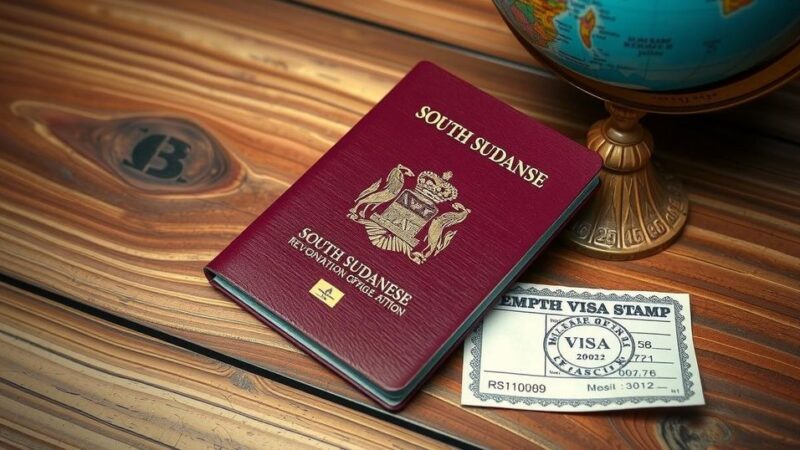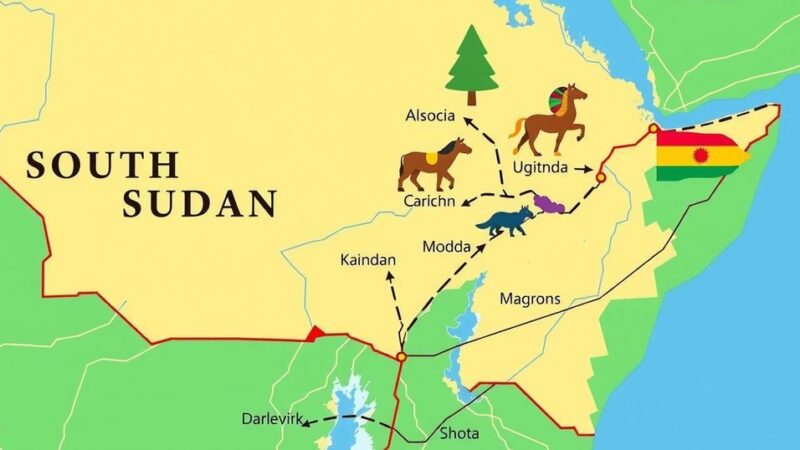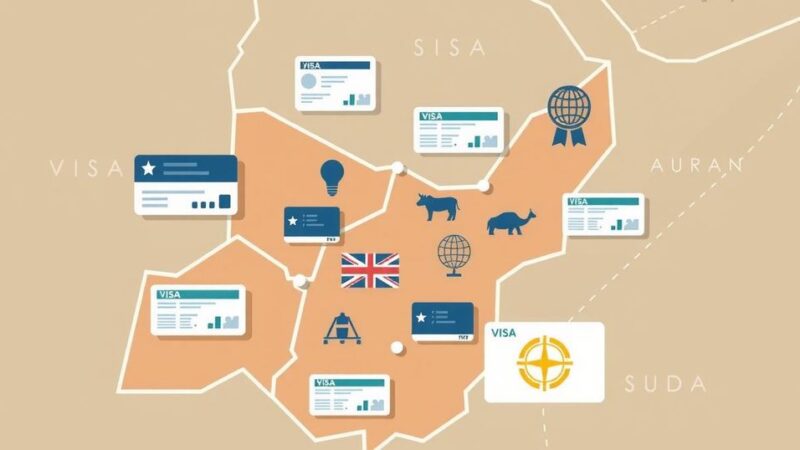President Donald Trump announced that Iran would be held accountable for attacks by Yemen’s Houthi rebels, escalating military actions that resulted in the death of at least 53 individuals during recent airstrikes. He criticized Iran for asserting victimhood despite their control over the Houthis. Houthi retaliatory threats were also reported, highlighting the ongoing tensions between the rebels, the U.S., and regional affiliations regarding military actions against Israel’s aid to Gaza.
United States President Donald Trump has declared that the U.S. will hold Iran accountable for any further assaults conducted by Yemen’s Houthi rebels. This assertion, made on Mr. Trump’s Truth Social platform, signifies an escalation in his administration’s airstrike campaign against the Houthis, resulting in the deaths of at least 53 individuals over the past weekend alone.
In his statements, Mr. Trump emphasized that Iran would face severe repercussions for any attacks initiated by the Houthis, labeling the group as “sinister mobsters and thugs.” He cautioned that any aggression from the Houthis would invite a response of “great force,” with no assurances regarding the extent of that response. Additionally, he criticized Iran’s portrayal as a victim of rogue terrorism, arguing they maintain control over the Houthis and support them with resources including weapons and intelligence.
While the motivation behind Mr. Trump’s remarks remains unclear, Iran’s Revolutionary Guard has attempted to distance itself from the Houthis’ actions. The Houthis have also demonstrated their capabilities by targeting the USS Harry S. Truman aircraft carrier in the Red Sea, though these attacks did not succeed in reaching the vessel.
In response to the U.S. airstrikes, Houthi supporters have gathered in multiple cities, promising retaliation against the United States and Israel for hindering aid to Gaza. Mohammed Ali al-Houthi, a prominent Houthi leader, rallied supporters by reinforcing their commitment to their cause, stating, “The Yemeni position is an irreversible position [regarding Gaza]… we are men who fear no one but God.”
Between November 2023 and January 2024, the Houthis engaged in numerous attacks against merchant vessels using missiles and drones, resulting in the sinking of two ships and the fatalities of four sailors. This military activity elevated the Houthis’ profile within the Arab world, simultaneously reducing public scrutiny regarding their actions against human rights and dissent within Yemen. Despite claims from the Houthis about further U.S. airstrikes conducted overnight, American officials have not yet corroborated these reports.
This article outlines President Trump’s assertion that Iran will bear responsibility for future Houthi attacks, marking an escalation in U.S. military actions against the group. The Houthis have vowed retaliation, while their leader emphasized their resolve regarding their stance on Gaza. The ongoing conflict illustrates the complex dynamics between Iran, the Houthis, and U.S. foreign policy, highlighting regional tensions and conflicts. Ultimately, the situation remains fluid, with the potential for further escalations between these parties, particularly as the Houthis align their actions with regional activist sentiments against perceived injustices in Gaza.
Original Source: www.abc.net.au






